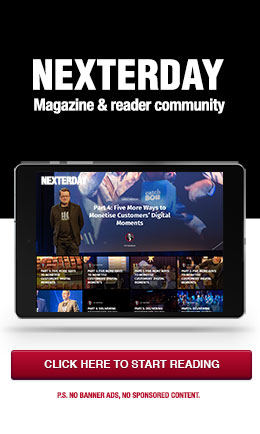Telecom Mediation: Time to Move Back into the Limelight?
Posted: March 8th, 2012 | Author: Special Contributor | Filed under: Industry Insights | Tags: analytics, big data, BSS/OSS, consolidation, mediation, mobile, telecom | 5 Comments »By: Dan Baker, Research Director, Technology Research Institute
I imagine there are quite a few mediation fans out there reading Comptel’s blog. And if you’re one of those mediation fans, you’re probably wondering: “What ever happened to the mediation market? Why has the sector been so quiet in recent years?”
Well, as an industry analyst who’s been following mediation and other BSS/OSS markets for quite a few years, I’ve been wondering the same thing myself. Mediation doesn’t get the press attention and conference coverage that it used to, and that’s a shame because we know that mediation plays such a vital role in the telecom back office.
Behind the Curtain
Mediation is like the stage crew working hard behind the curtain of a theatrical production. They’re the guys who work the spotlights, handle the costumes, move the scenery and perform the dozens of other tasks needed to support the main actors. In telecom BSS/OSS terms, those actors include all of the functions who get the limelight coverage—billing, charging, policy control, revenue assurance, cost assurance, marketing and fraud management, to name a few. But the truth is that none of those actors would accomplish much unless mediation was there behind the scenes doing the valuable data collection, aggregation and often real-time query work it’s famous for.
So why is it that we don’t hear much about mediation these days? Well, I attribute it to a couple of things.
First, the number of independent software vendors who sell mediation solutions has dwindled over the years, meaning there are fewer mediation companies eager to get the word out about it. In recent years, for example, AceComm was absorbed by Ventraq. CSG picked up Intec. Narus, a vendor who leveraged its mediation technology in the cyber security business, was sold to Boeing in 2010. Comptel got into the act too, acquiring some of the mediation assets of the Norwegian firm, EDB Telecom, a few years back.
A second factor that’s put a damper on mediation’s visibility is the mobile broadband explosion. As the market for iPads, Androids and other advanced mobile devices took off, many of the mediation vendors, including Comptel, built on their mediation expertise to add products in areas such as charging and policy control.
Future Mediation Opportunities
Ok, so exactly where does mediation go from here? Will the sector stay quiet, or will we see some kind of resurgence in the next few years?
Well, count me as a mediation optimist. I know how deeply embedded mediation technology is in telecom, and I see several industry trends that signal some nice opportunities for mediation to step up and add value.
Analysing “Big Data” – Telecom is abuzz over “big data” and “analytics” applications these days. And if that’s the case, then mediation is in a bit of a sweet spot because it’s responsible for feeding and enhancing the data streams for those “big data” guys. And what if mediation stepped up and assumed some of those analytics functions itself? For instance, mobile subscriber location information lives in the network, and a mediation system can gain access to it in real time. So if a mobile subscriber flies to a foreign country, and when she/he arrives and turns on the mobile phone, mediation is responsible for sending the subscriber a promotion to sign up for a special in-country roaming plan.
Consolidating Multiple Mediation Platforms – Plenty of operators own more mediation systems than they care to admit. But you know the story: “Time to market is more important than achieving mediation system commonality.” Sooner or later though, high maintenance costs dictate it’s time to consolidate. And talk about bloat: one operator recently consolidated 40 mediation systems onto a single platform.
Converging Mediation Functionality – The software vendors are getting more clever at building mediation systems that handle multiple functions. They can do batch as well as real-time on-line transactions in the same architecture. Fixed-line and mobile services, pre-paid charging and post-paid advice-of-charge can all be done in one place now, making consolidation on an advanced platform more attractive than ever.
Merging within Multi-Operator Groups – Large multi-operator groups can greatly benefit from mediation consolidation. Here I refer to cases where usage data is collected and distributed, say, across four countries and served by a data centre in one of them. One operator we know, a Comptel customer, manages 43 million subscribers and two billion transactions a day using this approach. A key advantage here: mediation expertise only needs to be maintained in one location.
Offloading Processing Power – Services in the mobile data world generate a ton of usage. And the need to extract intelligence from that data is coming from two directions. First, marketing seeks to promote services and generate more revenue. Then, engineering looks to optimise the use of expensive network resources. Mediation is the logical place to offload much of that usage processing.
Not only does mediation have access to the data first, but it can often process that data at a fraction of the cost. The latest mediation platforms utilise X86 and Linux blades that can deliver the same processing power at one tenth the cost of a traditional system. As we know, most telecom IT shops are religiously attached to UNIX. But because mediation’s home is in the network, it’s politically acceptable to diverge somewhat from IT’s architectural preference.
Conclusion
Maybe it’s unrealistic to expect mediation to move into the limelight. Mediation has thrived quite well in a supporting role. And it can certainly remain working quietly behind the scenes.
Yet, the opportunities are tantalising. If mediation can offload even a small percentage of mobile broadband bucket computation and analytics, then mediation’s value to the telecom back office is guaranteed to grow very nicely.
Dan Baker is the research director of Technology Research Institute (TRI) and has been following the BSS/OSS market since he formed TRI in 1994. He has just released a major 600+ page research report entitled, “Telecom Business, Fraud, Cost and Revenue Assurance: State of the Market and Practice”.





